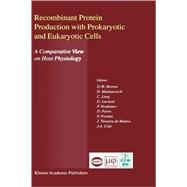
What is included with this book?
| Foreword | ix | ||||
| Cell-free translation systems | |||||
|
1 | (16) | |||
|
|||||
| Metabolic burden and stress response | |||||
|
17 | (12) | |||
|
|||||
|
|||||
|
|||||
|
|||||
|
|||||
|
|||||
|
|||||
|
|||||
|
29 | (14) | |||
|
|||||
|
|||||
|
43 | (12) | |||
|
|||||
|
|||||
|
|||||
|
55 | (20) | |||
|
|||||
|
|||||
|
|||||
|
|||||
|
|||||
|
|||||
|
|||||
|
|||||
|
|||||
|
|||||
|
|||||
|
75 | (14) | |||
|
|||||
|
|||||
|
|||||
| Genetic stability and gene copy number effects | |||||
|
89 | (10) | |||
|
|||||
|
|||||
|
|||||
|
|||||
|
|||||
|
|||||
|
99 | (12) | |||
|
|||||
|
111 | (14) | |||
|
|||||
|
|||||
|
125 | (16) | |||
|
|||||
|
|||||
|
|||||
|
|||||
| Transcription, translation, and product formation in E. coli | |||||
|
141 | (10) | |||
|
|||||
|
|||||
|
|||||
|
|||||
|
151 | (8) | |||
|
|||||
|
|||||
|
|||||
|
|||||
|
|||||
|
|||||
|
|||||
|
|||||
|
159 | (12) | |||
|
|||||
|
|||||
|
|||||
|
171 | (8) | |||
|
|||||
|
|||||
|
|||||
|
179 | (10) | |||
|
|||||
|
|||||
|
|||||
|
|||||
|
|||||
|
|||||
|
189 | (6) | |||
|
|||||
|
|||||
|
195 | (64) | |||
|
|||||
|
|||||
| Transcription, translation, and product formation in microbial systems other than E. coli | |||||
|
259 | (10) | |||
|
|||||
|
|||||
|
|||||
|
|||||
|
|||||
|
269 | (8) | |||
|
|||||
|
|||||
|
|||||
|
|||||
|
|||||
|
|||||
|
|||||
|
|||||
|
277 | (12) | |||
|
|||||
|
|||||
| Animal cell based expression systems - process optimisation | |||||
|
289 | (14) | |||
|
|||||
|
303 | (16) | |||
|
|||||
|
|||||
|
|||||
|
319 | (12) | |||
|
|||||
|
|||||
|
|||||
|
|||||
|
331 | (8) | |||
|
|||||
|
|||||
|
|||||
| Comparison of different microbial expression systems | |||||
|
339 | (8) | |||
|
|||||
|
|||||
|
|||||
|
|||||
|
|||||
|
347 | (12) | |||
|
|||||
|
|||||
|
359 | (12) | |||
|
|||||
|
|||||
|
371 | (12) | |||
|
|||||
|
|||||
|
|||||
|
|||||
|
383 | (10) | |||
|
|||||
|
|||||
|
|||||
| Subject Index | 393 | (6) | |||
| Authors Index | 399 |
The New copy of this book will include any supplemental materials advertised. Please check the title of the book to determine if it should include any access cards, study guides, lab manuals, CDs, etc.
The Used, Rental and eBook copies of this book are not guaranteed to include any supplemental materials. Typically, only the book itself is included. This is true even if the title states it includes any access cards, study guides, lab manuals, CDs, etc.